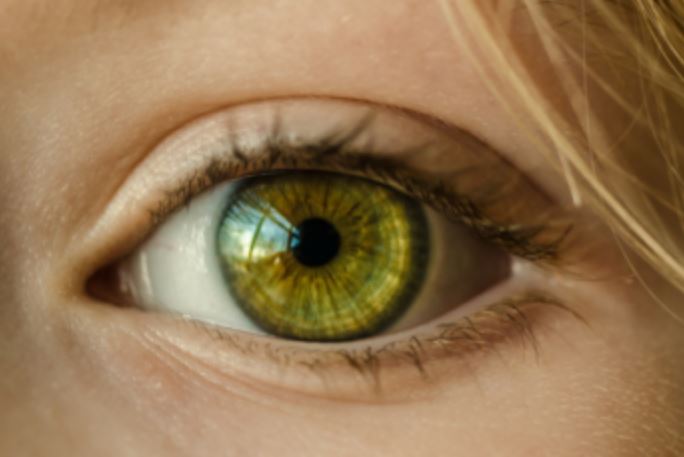
10 Tips To Keep Your Eyes Healthy
Share
The eyes are very important for functional living and are irreplaceable. It is with the eyes that we see and navigate the beauty of the world around us. They perform a very important function, but they are one of the most fragile organs in the body. We must take the care of our eyes seriously so they can keep serving us for as long as possible.
There are lots of factors that can cause the eyes to become less effective, age, pollution, unhealthy diet, and stress are some of them. Even though there is nothing that can be done to reverse the effect of time (age) on the eyes, there are things we can do, and habits we can adopt, that can help us maintain good sight and slow down the aging of the eyes.
In this article, we'll familiarize you with tips that can help you maintain the health of your eyes so you can keep having great eyesight and avoid health issues and complications related to the eye.
1) Consistently Eat a Healthy Diet
You must have heard of an expression used in the computer world ”Garbage in, garbage out.” What you feed your body is very essential to not only the health of your eye but also the health of your whole being. Maintaining good eye health starts with consistently eating a healthy and balanced diet.
A well-balanced diet helps you to maintain a healthy weight, which in turn reduces your risk of obesity and other related diseases like type 2 diabetes, a leading cause of blindness in adults.
You can prevent vision problems like macular degeneration and cataracts by making sure your diet is rich in vital nutrients like omega-3 fatty acids, zinc, lutein, and vitamins C and E.
Make sure your diet includes the following:
Green leafy vegetables (spinach, kale, collards, etc.).
- Oily fishes rich in omega-3 fatty acids like tuna, salmon, sardines, etc.
- Seeds and nuts.
- Eggs, milk products, and non-meat protein foods
- Oranges and citrus fruits or juices.
Staying hydrated is also part of maintaining a healthy diet. Staying hydrated will prevent your eyes from getting dry and irritated.
2) Give Up Smoking
Smoking can cause damage to your optic nerve and increase your chances of getting cataracts, macular degeneration and other health problems. Understandably, smoking is a habit that's hard to kick, if you've been struggling with stopping you can see a doctor or therapist to help you with the process.
3) Protect Your Eyes
Your eyes are one of the most fragile organs in your body, and they are right there in front of you, facing everything you're facing daily. This makes them open to environmental and occupational dangers. Listed below are some of the ways you can protect your eyes.
- Wear sunglasses: The UV rays of the sun can be harmful to the eyes with prolonged exposure. Wearing the right pair of shades will help protect your eyes from the sun.
- Use safety eyewear: If you work in environments where you are exposed to hazardous materials or maybe work in construction where there are chances of accidents, it’s important to wear protective masks or goggles to shield your eyes and prevent damage.
- Use computer glasses: Constant exposure to the light emitted by computer and phone screens can be bad for your eyes. Invest in the right pair of computer glasses and make sure to use them whenever you're working on your computer or using your phone for extended periods.
Diabetes and obesity are closely related to potential eye problems. The risk of having glaucoma and retinopathy is highly increased with diabetes and obesity in the mix. To prevent this, it is important to practice diet control, exercise, and maintain a healthy level of blood pressure and cholesterol.
This is a classic case of prevention is better than cure. Having good and healthy eating habits can help prevent obesity and diabetes, which in turn reduces the chances of having eye problems you have to spend time and money to treat and manage.
5) Give Your Eyes a Break
It is the age of knowledge and technology, we spend a lot of our time in front of computer and phone screens. A good habit to adopt is looking away from the screen once every 30 minutes and keeping the eyes closed for 15 seconds.
It is important to blink when working for extended periods in front of the computer. Every 30 minutes, take a break and blink 20 successive times to prevent eye dryness. Another aspect of giving your eyes a break is getting enough sleep. Sleeping enough and allowing your eyes to rest and recharge is very essential to maintaining good eyesight and health.
6) Go For Regular Check-Ups
Most ailments can be prevented and better handled when they are diagnosed early. It is important to visit your eye doctor regularly so you become aware of the health and state of your eyes. This awareness will help take better care of your eyes.
You can either see an ophthalmologist or optometrist regularly to have revealing discussions about your personal and family medical history. You can also take tests that will determine how well your eyes work together and catch diseases at the early stage when they are easy to treat.
This visit to the doctor for a comprehensive consultation and checkup should be done at least once a year. With regular checkups, you can check sight-threatening eye conditions like cataracts, retina detachment, and glaucoma.
7) Be Aware of Lighting
Constantly exposing your eyes to harsh lighting is bad for your eyes. If your office, room, or living space has bright lighting, you can turn some lights off to reduce the intensity of the light reaching your eyes. A good practice is not sitting with your back to an open window when using a computer or watching television as the screen will reflect the light coming through the window.
8) Practice Proper Contact Lens Care
If you use contact lenses, you should pay attention to how you care for and handle them as they come in direct contact with your eyes. Some tips are listed below:
- Thoroughly wash your hands before taking out your contact lenses or putting them in.
- Make sure to only use lens cleaners and drops checked and verified by your eye doctor.
- Wash and dry the case holding your contact lenses after each use.
- Change your case regularly (every two to three months).
- Don’t swim with your contact lenses.
- Don’t sleep with your contact lenses.
9) Pay Attention To Side Effects of Medications
There are lots of medications that can affect your vision: antipsychotics, antidepressants, steroids, pain medications, antihistamines, beta-blockers, etc. Whenever you're using a prescribed medication, pay attention to the state of your eyes so you can catch side effects and report them to your doctor immediately.
10) Be Careful When Using Eye Makeup
Eye makeup that has a creamy and liquid nature can become breeding grounds for bacteria. It is important to change your eye makeup and mascara often and refrain from sharing the same with other people. When trying a new product, be careful and pay close attention to see if you’re going to react to it in any way.
